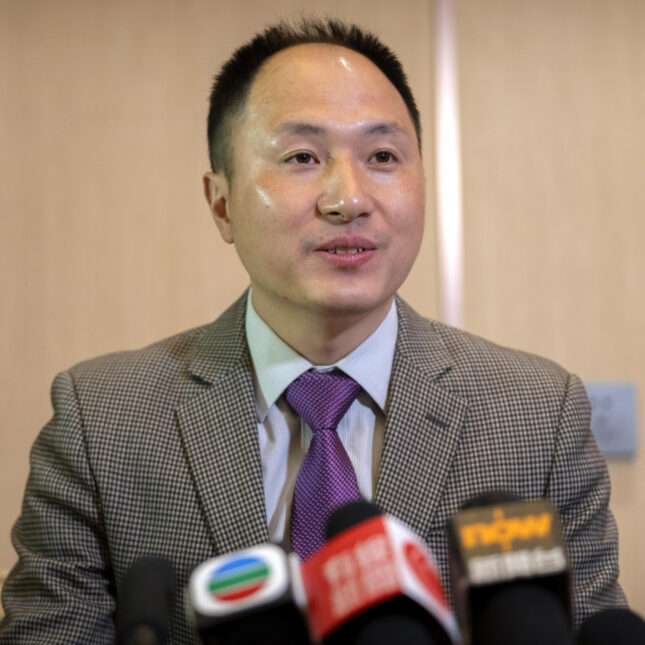
Jiankui He, the Chinese scientist who sparked a global uproar in 2018 when he revealed he had created the first gene-edited children, is again out on his own after being dismissed from an academic post.
In January 2019, provincial health authorities found that He’s human CRISPR experiments violated national regulations against gene-editing for reproductive purposes. He was subsequently fired from the Southern University of Science and Technology in Shenzhen, where he had been recruited to lead a lab while a postdoc with Stanford’s Steve Quake. He was later sentenced to three years in prison in China for “illegal medical practices.”
Since resurfacing in 2022 and declaring his intentions to rejoin the scientific community that widely condemned his actions, He has shuffled around the country struggling to get a foothold. In a recent interview with STAT, He said that the Beijing-based “not-for-profit medical research institute dedicated to rare disease gene therapy” he had previously promoted on social media has still yet to be established. “I couldn’t register it as a non-profit in China,” he said, due to a “lot of mistrust” from regulatory authorities there.

This article is exclusive to STAT+ subscribers
Unlock this article — plus in-depth analysis, newsletters, premium events, and networking platform access.
Already have an account? Log in
Already have an account? Log in
To submit a correction request, please visit our Contact Us page.










STAT encourages you to share your voice. We welcome your commentary, criticism, and expertise on our subscriber-only platform, STAT+ Connect